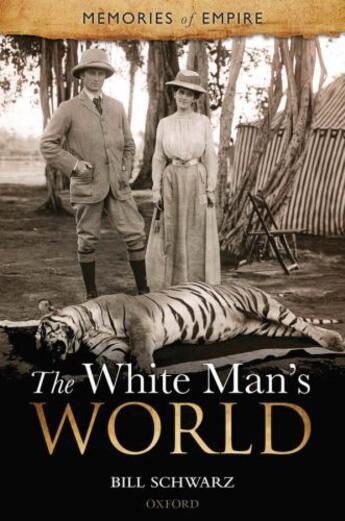-
Nombre de pages : (-)
-
Collection :
(-)
-
Genre :
(-)
-
Thème :
Non attribué
-
Prix littéraire(s) :
(-)
Résumé:
Memories of Empire is a trilogy which explores the complex, subterranean political currents which emerged in English society during the years of postwar decolonization. Bill Schwarz shows that, through the medium of memory, the empire was to continue to possess strange afterlives long after... Voir plus
Memories of Empire is a trilogy which explores the complex, subterranean political currents which emerged in English society during the years of postwar decolonization. Bill Schwarz shows that, through the medium of memory, the empire was to continue to possess strange afterlives long after imperial rule itself had vanished.
The White Man's World, the first volume in the trilogy, explores ideas of the white man as they evolved during the time of the British Empire, from the mid-nineteenth century to the mid-twentieth century, looking particularly at the transactions between the colonies and the home society of England. The story works back from the popular response to Enoch Powell's 'Rivers of Blood' speech in 1968, in which identifications with racial whiteness came to be highly charged. Driving this new racial politics, Bill Schwarz proposes, were unappeased memories of Britain's imperial past.
The White Man's World surveys the founding of the so-called white colonies, looking in particular at Australia, South Africa, and Rhodesia, and argues that it was in this experience that contemporary meanings of racial whiteness first cohered. These colonial nations - 'white men's countries', as they were popularly known - embodied the conviction that the future of humankind lay in the hands of white men. The systems of thought which underwrote the ideas of the white man, and of the white man's country, worked as a form of ethnic populism, which gave life to the concept of Greater Britain.
But if during the Victorian and Edwardian period the empire was largely narrated in heroic terms, in the masculine mode, by the time of decolonization in the 1960s racial whiteness had come to signify defeat and desperation, not only in the colonies but in the metropole too. Identifications with racial whiteness did not disappear in England in the moment of decolonization: they came alive again, fuelled by memories of what whiteness had once represented, recalling the empire as a lost racial utopia.
Donner votre avis














